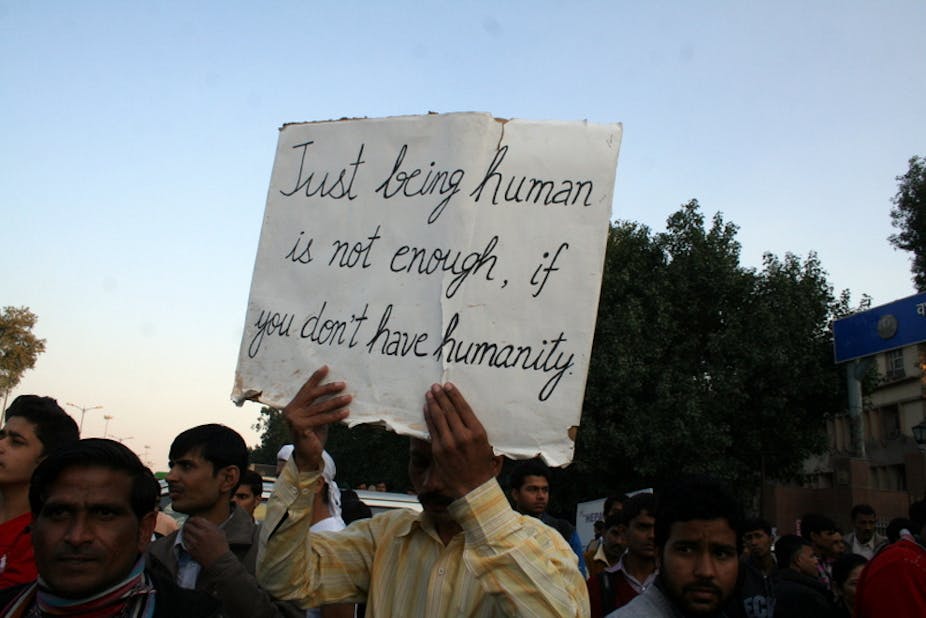A third of women worldwide have experienced physical or sexual violence at the hands of a partner, according to the first comprehensive research of its kind.
The report, published today by the London School of Hygiene and Tropical Medicine (LSHTM) and the World Health Organisation (WHO), also reveals that nearly 40% of murders of women were committed by close partners.
The figures show the shocking levels of attacks on women across the globe and a catalogue of health problems caused by them.
The worst affected regions were South-East Asia where nearly 38% of women were subjected to sexual or physical violence by a close partner, followed by the Eastern Mediterranean (37%) and Africa (36.6%).
For violence committed by close partners and others, Africa was worst with 46% of women affected. Even in the European region, which reported the smallest rate, 27% of women were victims of these types of abuse.
The research is the result of a systematic review using global population data taken from two papers published in the Lancet and Science journals. Researchers used the data to look at the association between different forms of violence and it’s impact on women’s health.
Health problems
The researchers found a huge array of health problems have their root in sexual or physical violence. Apart from immediate physical injuries, women can also encounter significant problems including mental health issues, alcohol abuse and in women who were pregnant, children with low birth weight.
Professor Charlotte Watts, from the LSHTM and a co-author of the report, said the report highlighted the high global levels of violence that happening across the globe. “We need to take this issue more seriously; it affects women in all parts of the world,” said Watts.
The prevalence of the problem is likely to shock, but the wider health implications are an even greater cause for concern. Women who experience partner violence typically have less control over sex and their sexual health, including the use of condoms, according to the report. As a consequence, these women are up to 1.5 times more likely to contract HIV.
Female victims of partner abuse are also twice as likely to have an abortion. Half of abortions worldwide are thought to take place in unsafe conditions, according to the study, placing these women at even higher risk of injury or death. Victims of violence are also twice as likely to suffer depression and this figure is even higher for women who experience sexual assault from non-partners; they are more than twice as likely to become depressed and to have problems with alcohol abuse.
But the link between alcohol and violence is complicated. Women could be turning to alcohol as a coping mechanism, but their drinking could also lead to an abusive reaction from their partners, the researchers said.
Better education, employment and legal status
The researchers suggest that the numbers in the report are likely to be conservative and the true size of the problem still hidden by a lack of data and missing information. For example, a women might report health problems but not say how she was injured.
“We really need to be tackling some of the social and economic conditions that help violence to thrive,” said Watts. This includes access to education and employment, economic and legal equality and social norms regarding acceptable behaviour towards women are all tied to the levels of violence that women experience.
Another solution is to provide better training for health professionals and better collection of information which can be used by policy makers. The report recommends that post-rape care needs to also be made accessible to victims through health providers within 72 hours of the attack.
Polly Neate, Chief Executive of Womens’ Aid, a UK domestic violence charity, said: “Doctors need to be aware of domestic violence, able to spot it, identify it, and act on it, but too often they lack the confidence or training to take this action.”
“One of the important conclusions from this work is that we need to step up action by the health sector,” Watts said. She added:“Training on violence should be included in the medical training curriculum.”
Dr Heidi Stöckl, lead author of the Lancet paper, said: “Our results underscore that women are disproportionately vulnerable to violence and murder by an intimate partner, and their needs have been neglected for far too long. Such homicides are often the ultimate outcome of a failed societal, health, and criminal justice response to intimate partner violence.”
But there are some examples of good work. Malaysia is currently a forerunner in the provision of care for female victims of sexual and physical assault, said Watts. “Across the country there is a national policy to make accident and emergency departments once stop centres, where women can access a range of services, including legal and counselling services.”

